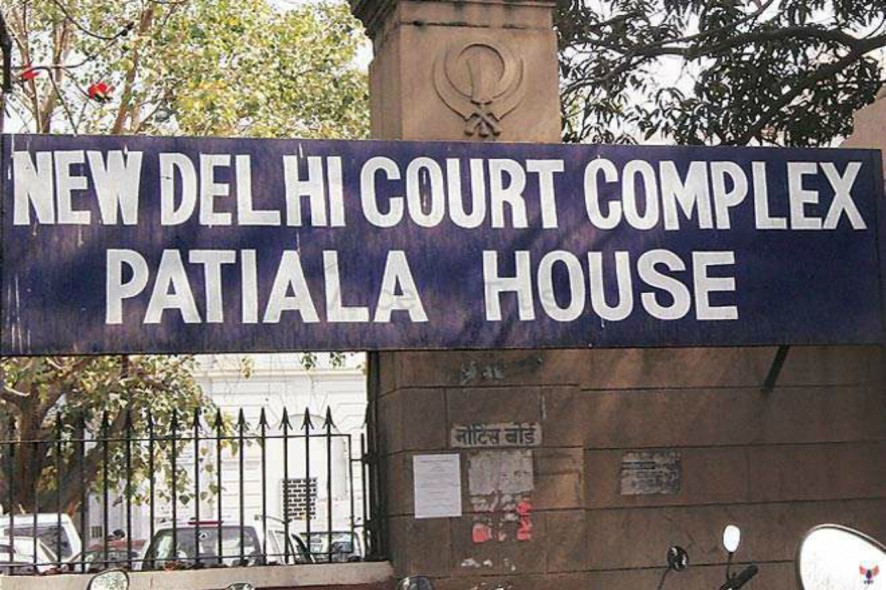Patiala House Courts, New Delhi: Parveen Singh, Additional Sessions Judge expressed that,
“Section 6(3) NIA Act only applies to the cases where a report has been sent by the State Government and does not apply to the cases where information has been given by some individual and thus, Central Government is not bound to act upon this information within 15 days or to revert back to said individual.”
Instant application was filed under Section 156 (3) CrPC read with Section 16 of NIA Act seeking directions for registration of First Information Report.
Applicant/Complainant was renowned in the field of medicine with recognized expertise and in the said capacity he undertook a thorough analysis of nature and origin of SARS-CoV-2.
He submitted that in view of the nefarious, terrorist, expansionist, aggressive and animus behaviour of China at the borders of Northeast region of India, it would be dangerous not to undertake a detailed investigation qua the origin and spread of the virus from China to India. Considering the nature of deliberate and malicious origin of the virus, offences under Sections 16, 17, 18, 18A, 18B, 23 etc. of UAPA and section 14 of Weapons of Mass Destruction and their Delivery System (Prohibition of Unlawful Activities) Act and Sections 121/270/302/307/312/313/325/333/314 r/w Sections 34/120B of IPC are made out.
In view of the above-stated applicant forwarded a complaint to the Director General, NIA for registration of appropriate report and for investigation into the offences. Applicant forwarded a complaint to the MHA.
Complainant’s counsel submitted that it was a widespread conspiracy to carry out the terrorist act by a biological weapon throughout the world and it had its effects in India also.
Adding to the above contention, he added that as per Section 15 (1) (a) of UAPA, 1967, an act committed by using substances whether biological radioactive, nuclear of a hazardous nature or by any other means to cause death, injury to any person or persons is a terrorist act. He has further contended that the virus created in the lab was a biological substance which has resulted in loss of lives and thus a terrorist act has been committed. He has further contended that as per Section 16 (1) of NIA Act, 2008, this court has powers to take cognizance of the offence and thus, it becomes a court of original jurisdiction and hence, the present application under Section 156 (3) CrPC is maintainable before this court.
Analysis, Law and Decision
Bench stated that a bare perusal of Section 6 of the NIA Act reflected that there are two modes of investigation by NIA.
- One is where an offence is reported and registered with local PS in a State and the State forwards the report to Central Government for its consideration, as is provided under Section 6(3) NIA Act. Thereafter, after considering the said report, the Central Government shall take a decision whether the matter is to be investigated by NIA or not.
- The second is, that the Central Government, as provided under Section 6(5) NIA Act, can suo moto and without any report of the State Government can direct the NIA to take over the investigation.
Court disagreeing with the interpretation made by the complainant’s counsel that the words “or received from any other source” imply if the Centre receives information from any other source, it is still duty bound to act as provided under Section 6(3) NI Act and take a decision within 15 days.
Analysis, further, the Bench added that, if read holistically, Section 6(3) NIA Act opens with words “On receipt of report from the State Government”. So as far as Section 6(3) NIA Act was concerned, the process is only set in motion when the Central Government receives a report from the State Government.
Moving further, the Court expressed that while evaluating the report of State Government to decide whether the offence is Scheduled Offence or not and whether, the gravity of offence is such which would make it a fit case to be investigated by NIA, the Central Government on receipt of report from the State can not only use the information made available by the State but also use information received from any other source. So the words “from any other source” have been used with respect to material which the Central Government can utilize to decide whether from the report of the State, Scheduled Offences are made out or not and whether the offence is fit to be investigated by NIA.
an investigation by the NIA can only be taken up on the recommendation of the Central Government which the Central Government either gives suo moto or which it gives on the report of the State Government.
Hence, Section 156(3) CrPC will have no applicability in the present case.
Final Words
In Court’s opinion, the present complaint was based upon media reports, opinions, conjectures, surmises, probabilities and possibilities. There are no categorical facts which have been alleged and only the possibilities that SARS-CoV-2 might have been genetically modified at Wuhan Laboratories have been raised and that too not on the basis of facts but on the basis of view of experts.
Hence, Court held that,
“Opinions can never substitute facts and for creation of an offence, certain facts constituting the offence need to be disclosed and not the mere possibilities as has been done in the present matter.”
No merits were found in the present complaint. [Dr Jagdish Prasad v. State, CC No. 68 of 2021, decided on 7-8-2021]







Great information thanks for sharing such a valuable information